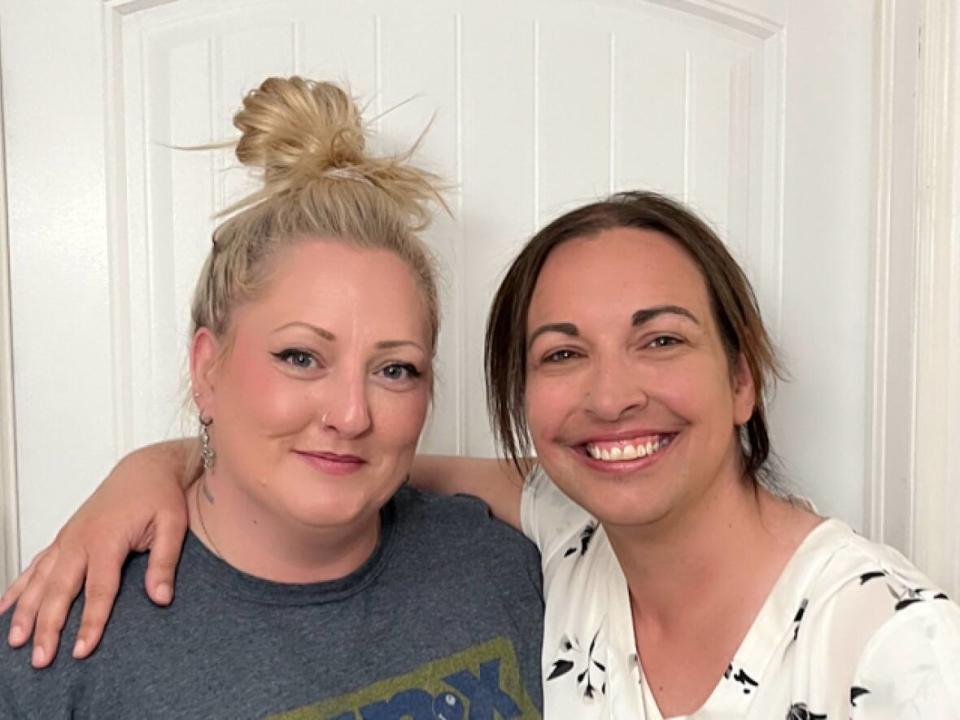This rehab program won't force crystal meth or cocaine users to stop using

An addiction treatment centre in Saint John is launching a new program for people addicted to stimulants such as crystal meth and cocaine.
"I'm really excited to be part of something that I know first hand will make a difference," said Krystal Jesso of the Centre For Research, Education And Clinical Care of At-risk Populations.
Jesso and her six co-workers in the stimulant treatment management program are offering support to up to 30 people in Health Zone 2, which is from St. Stephen to Sussex, who are using drugs and are ready to make some kind of positive change in their life.
The program can take the form of support of any kind, such as accompanying a person to appointments or helping them pay for school or rent, said Stefanie Materniak, research manager at the centre.
"We have to stop assuming we know what people need," said Materniak. "Everybody's version of success is different. Everyone's version of quality of life is different."
"We'll walk alongside them to help them achieve whatever goals they set out for themselves. Because one of the biggest things is when you don't have such a good support system, a lot of things can feel very daunting."

For example, it's very difficult to maintain sobriety or find housing on your own when getting out of jail, said Jesso.
"You can't get a place unless you have a landlord to sign a tenant form, and you can't get that done unless you have your cheque first."
It's all very overwhelming to a person who is experiencing a "fight, flight or freeze," reaction to a high level of stress or trauma, she said.
"To have somebody help you dial it down a notch, and break those goals down for you, and show you the steps and be there with you for those steps would have made the world a difference."
To be forced into something you're not ready for is a setup for failure.
-Krystal Jesso, stimulant treatment management program
Jesso said she spent "many, many, many years" at the bottom of a barrel, cross-addicted to stimulants and opiates.
"In that state of mind, goals aren't realistic. Your only goal is your next hit," she said.
She spent her time on Waterloo Street and in jails, rehab and hospitals. She overdosed. Her heart stopped. She slept under a bridge by the Tim Hortons in Saint John's north end.
When she was around 32 years old, she started to see people she'd gone to school with making lives for themselves with families and careers, and she decided she didn't want to plunge any deeper into addiction.
She's been sober for almost seven years now and has a three-year-old child.
She couldn't have imagined then how far she's come today.
It takes a foundation of good support to get to sobriety, said Jesso. That's what she hopes to provide to participants in the stimulant treatment program.

She and another team member, who has lived experience, will handle client intake and reach out to people who sign up.
"If you miss an appointment, we're not going to bail on you. I'll find you. I'll get a gift card. We'll go out for lunch. … We just want people to know that we're with you and it's OK. We can help you and give us a chance."
The program is not focused on making anyone stop using drugs.
"To be forced into something you're not ready for is a setup for failure," said Jesso.
But drug use will be tracked "in the background," said Materniak.
The premise is that people will probably use less if their quality of life is better, she said.
"If you feel like you can achieve those little goals it all adds up and maybe you can touch the tip of that mountain, which is sobriety, and it gives you hope," said Jesso.
There are currently no long-term treatment options for stimulants, according to Materniak.
She has been involved with centre since it opened in 2014, and it's bothered her over the years that it has never been able to "fully" treat people.
"It's really devastating," she said.
"We can get their opioid addiction under control … with methadone or Suboxone, but, they're still addicted to stimulants and there's really nothing we can do for them."
"It's like you're kind of half-treating them, but they're still injecting, they're still smoking crack … and with crystal meth arriving, it's a totally different ball game."
"The need is very, very great," she said.
After making one post about the new program on social media, they already have eight people interested in signing up.
The centre has close to $700,000 in federal funding for the program.
Anyone with moderate to severe stimulant use disorder can self-refer, said Materniak. Intake will happen over the next few months and the 30 participants will be supported for 18 months ending in February 2025.
She said if things go well, the program could become permanent and be rolled out elsewhere.

